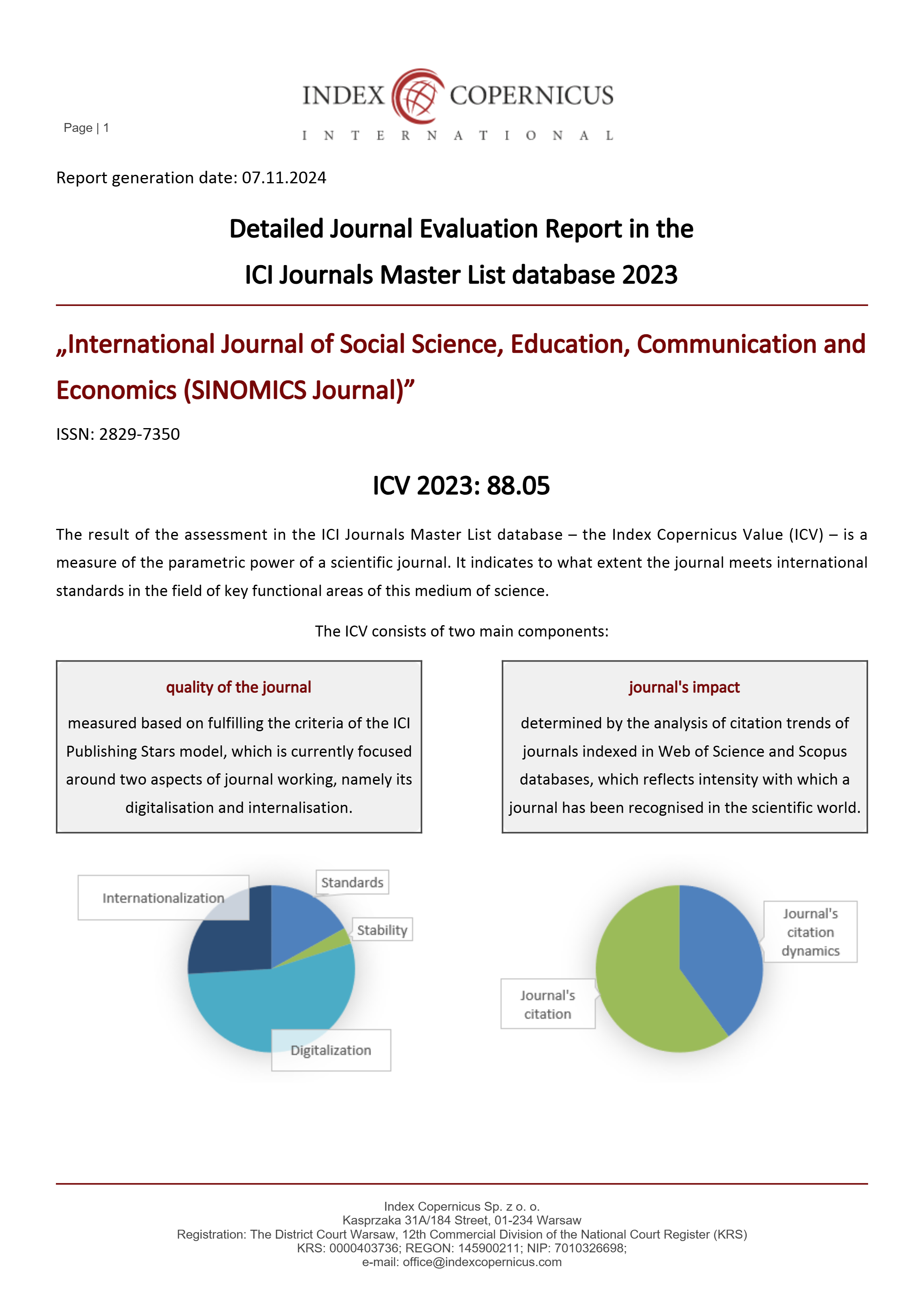Determinants That Influence the Community's Voting Sharia Financial Technology (Fintech)
Main Article Content
Mohammad Nuhwana Saputra
In the Digital Age, many activities are carried out using technology, such as making telephone electricity payments, shopping with e-commerce, including applying for loans, so that technology is a community need, especially those who have high mobility. The purpose of this study was to examine the effect of the variables financial literacy, religiosity and the Technology Acceptance Model on the decision to choose financial technology financing. The object of research is the people living in Jabodetabek, with a quantitative descriptive design. The research data source is primary data obtained by distributing questionnaires to respondents. The population of people who live in Jabodetabek with the sample selection technique using purposive sampling of 105 respondents. Data analysis used Structural Equation Modeling (SEM) with PLS 3.0 software. The research results prove that the literacy variable based on the P-Value value is obtained 0.00 <0.05, meaning that the literacy variable has a significant effect on the dependent variable in the decision to choose sharia fintech. Based on the P-Value, the Religious Variable is 0.00 <0.05, meaning that the Religious variable has a significant effect on the dependent variable on the decision to choose Islamic fintech. Meanwhile, the Technology Acceptance Model variable based on the P-Value value obtained 0.602 > 0.05, meaning that the Technology Acceptance Model variable has no significant effect on the dependent variable on the decision to choose Islamic fintech. meaning that the Literacy variable has a significant effect on the dependent variable on the decision to choose sharia fintech. Based on the P-Value, the Religious Variable is 0.00 <0.05, meaning that the Religious variable has a significant effect on the dependent variable on the decision to choose Islamic fintech. Meanwhile, the Technology Acceptance Model variable based on the P-Value value obtained 0.602 > 0.05, meaning that the Technology Acceptance Model variable has no significant effect on the dependent variable on the decision to choose Islamic fintech. meaning that the Literacy variable has a significant effect on the dependent variable on the decision to choose sharia fintech. Based on the P-Value, the Religious Variable is 0.00 <0.05, meaning that the Religious variable has a significant effect on the dependent variable on the decision to choose Islamic fintech. Meanwhile, the Technology Acceptance Model variable based on the P-Value value obtained 0.602 > 0.05, meaning that the Technology Acceptance Model variable has no significant effect on the dependent variable on the decision to choose Islamic fintech.
Aguda, R., Bonilla, S., Hmida, J. Ben, & Revellame, E. D. (2021). Challenges and Opportunities in Developing Project Management Decision-Making Tools. Journal of Engineering, Project, and Production Management, 11(2), 127– 138. https://doi.org/10.2478/jeppm-2021-0013
Ahmed, Z., Noreen, U., Ramakrishnan, S. A. L., & Bint Abdullah, D. F. (2021). What explains the investment decision-making behavior? The role of financial literacy and financial risk tolerance. Afro-Asian Journal of Finance and Accounting, 11(1), 1–19. https://doi.org/10.1504/AAJFA.2021.111814
Akhta, S., Sheorey, P. A., Bhattacharya, S., & Ajith, K. V. V. (2021). Cyber security solutions for businesses in financial services: Challenges, opportunities, and the way Forward. International Journal of Business Intelligence Research, 12(1), 82–97. https://doi.org/10.4018/IJBIR.20210101.oa5
Akpene Akakpo, A., Amidu, M., Coffie, W., & Abor, J. Y. (2022). Financial literacy, financial inclusion and participation of individuals on the Ghana stock market. Cogent Economics and Finance, 10(1). https://doi.org/10.1080/23322039.2021.2023955
Alkan, Ö., Oktay, E., Ünver, S., & Gerni, E. (2020). Determination of factors affecting the financial literacy of university students in eastern Anatolia using ordered regression models. Asian Economic and Financial Review, 10(5), 536–546. https://doi.org/10.18488/journal.aefr.2020.105.536.546 Arend, R. J. (2022). Strategy under Ambiguity, and a New Type of Decision Dilemma. Administrative Sciences, 12(2). https://doi.org/10.3390/admsci12020044
Aviyah, E., & Farid, M. (2014). Religiosity, Self-Control and Juvenile Delinquency. Persona: Indonesian Journal of Psychology, 3(02), 126–129. https://doi.org/10.30996/persona.v3i02.376
Björklund, M., & Sandahl, J. (2021). Inviting students to independent judgment: Teaching financial literacy as citizenship education. Citizenship, Social and Economic Education, 20(2), 103–121. https://doi.org/10.1177/20471734211029494
Desmayonda, A., & Trenggana, A. F. M. (2019). The Influence of the Halal Label on Purchasing Decisions with Religiosity as an Intervening Variable at Mujigae Resto Bandung. Economic Dynamics - Journal of Economics and Business, 12(1), 180–196.
Dinc, Y., Çetin, M., Bulut, M., & Jahangir, R. (2021). Islamic financial literacy scale: an amendment in the sphere of contemporary financial literacy. ISRA International Journal of Islamic Finance, 13(2), 251–263. https://doi.org/10.1108/IJIF-07-2020-0156
Fauzi, A., & Murniawaty, I. (2020). The Influence of Students' Religiosity and Sharia Financial Literacy on Interest in Becoming a Customer at a Sharia Bank. EEAJ Economic Education Analysis Journal, 9(2), 473–486. https://doi.org/10.15294/eeaj.v9i2.39541
Fauzi, F., Antoni, D., & Suwarni, E. (2021). Mapping potential sectors based on financial and digital literacy of women entrepreneurs: A study of the developing economy. Journal of Governance and Regulation, 10(2 Special Issue), 318–327. https://doi.org/10.22495/JGRV10I2SIART12
Ferrada, L. M., & Montaña, V. (2022). Inclusión y alfabetización financiera: el caso de trabajadores estudiantes de nivel superior en Los Lagos, Chile. Estudios Gerenciales, 38(163), 211–221. https://doi.org/10.18046/j.estger.2022.163.4949
Ferri, L., Spanò, R., Maffei, M., & Fiondella, C. (2020). How risk perception influences CEOs' technological decisions: extending the technology acceptance model to small and medium-sized enterprises' technology decision makers. European Journal of Innovation Management, 24(3), 777–798. https://doi.org/10.1108/EJIM-09-2019-0253










